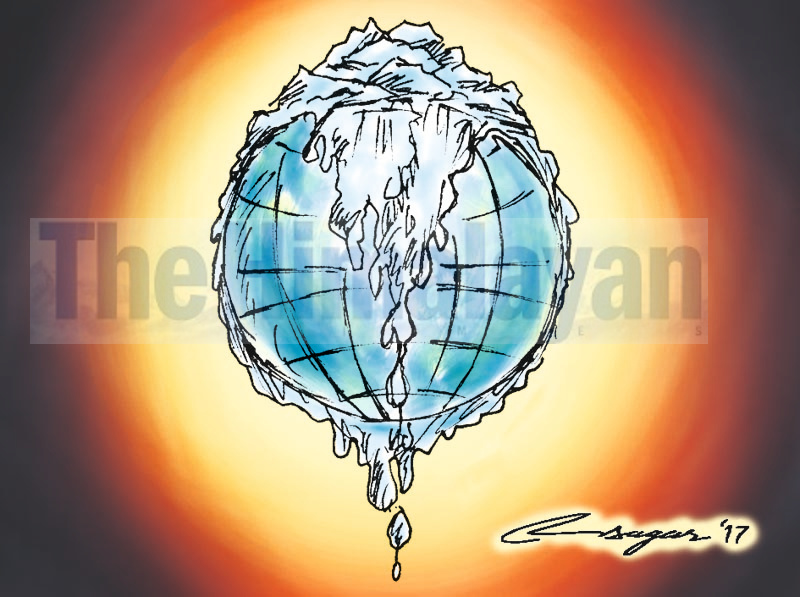Climate change toll on Nepal’s economy at 13 per cent by 2100
Kathmandu, August 21
Ignoring the Paris Agreement goal of limiting the increase in average global temperatures to 0.01 degrees Celsius per annum could result in 13.15 per cent loss in gross domestic product (GDP) per capita of Nepal by 2100, as per a new report.
In ‘Long-Term Macroeconomic Effects of Climate Change: A Cross-Country Analysis’, by the National Bureau of Economic Research, the researchers studied the long-term impact of climate change on economic activity across countries, using a stochastic growth model where labour productivity is affected by country-specific climate variables — defined as deviations of temperature and precipitation from their historical norms.
The GDP loss for Nepal by 2030 in an unmitigated scenario, in which emissions continue to rise throughout the 21st century, would be 1.61 per cent. The loss will have widened to 4.86 per cent by 2050, as per the analysis.
However, the ability to hold the increase in the global average temperature to below two degrees Celsius above pre-industrial levels in line with the Paris Agreement would limit the loss to the country’s GDP to 0.59 per cent by 2030, 1.82 per cent by 2050 and 5.34 per cent by 2100.
In south Asia, only Bhutan will face a bigger loss to its GDP due to climate change compared to Nepal. As per the analysis, Bhutan’s economy will lose 10.33 per cent by 2100 if the rise in temperature is limited to Paris agreement. This loss will have ballooned to 17.76 per cent in an unmitigated scenario.
In contrast, the loss in neighbouring India’s GDP will be 2.57 per cent and 9.90 per cent by 2100, in the two aforementioned scenarios.
Using a panel data set of 174 countries over the years 1960 to 2014, the researchers found that per-capita real output growth is adversely affected by persistent changes in the temperature above or below its historical norm. The analysis suggests that a persistent increase in average global temperature by 0.04 degrees Celsius per year, in the absence of mitigation policies, reduces world real GDP per capita by 7.22 per cent by 2100.
On the other hand, abiding by the Paris Agreement, thereby limiting the temperature increase to 0.01 degrees Celsius per annum, reduces the loss substantially to 1.07 per cent.
“These effects vary significantly across countries,” as per the report.






